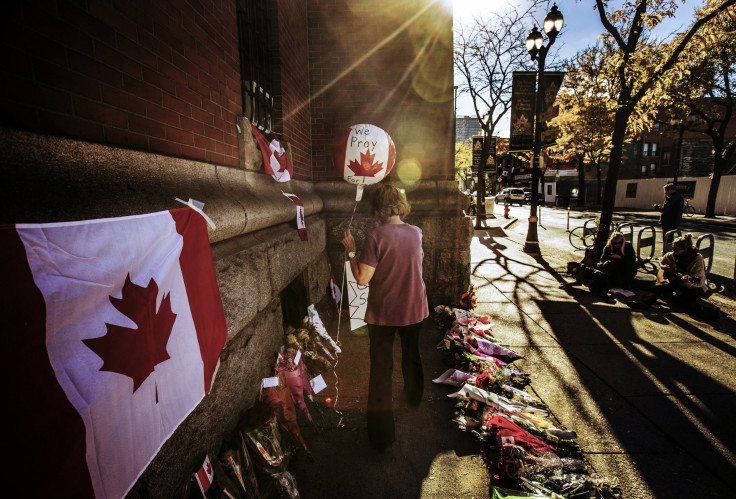ISIS In Canada: The Biggest Terror Threat To Canada Could Come From Within Its Borders

Two attacks in one week with two killed have brought Canada to the fore as a North American breeding ground for terrorist sympathizers. The normally peaceful country has seen between 130 and 145 of its citizens leave and join extremist groups abroad in the past few years, according to Canadian intelligence services, but they may not be the biggest threat. Canada's national security could be in danger from Canadians who have never traveled to overseas jihadist training camps, but are independently committing acts of violence against other Canadians under the banner of the Islamic State group.
“Canada is not immune,” said Mubin Shaikh, a former Taliban recruiter who operated from his hometown of Toronto before changing sides to work for the government as a national security operative. “We need to get away from the idea that even though we're the nicest people you’ll ever meet, people will still attack us.”
Canadians returning from the front lines of jihad are likely to have received weapons and bomb-making training, but while fighters returning to Canada may be well-prepared, they might not be able to operate as covertly as ISIS supporters within the country, said Bob Milton, a retired commander of the London Metropolitan Police Service in the UK.
The Canadian government labeled Wednesday’s shooting at Ottawa’s parliament and a hit-and-run attack in Quebec as “terrorist attacks.” Both Ottawa shooter Michael Zehaf-Bibeau and Quebec attacker Martin Rouleau-Couture were born in Canada, were recent converts to Islam and were reportedly being monitored by law enforcement after attempting to travel to Syria. Although they never left Canada to fight with terrorist groups, their social media profiles were filled with ISIS propaganda. It’s still unknown if a member of ISIS instructed them to carry out their attacks or if the terrorist group simply served as inspiration for "lone wolf" actions.
“It’s linked to ISIS. It follows a direction that was given,” said Shaikh. “It fits the pattern of other countries involved in anti-ISIS operations.”
After Canada announced it would join the U.S.-led air campaign against ISIS, the militant group released a propaganda video urging followers to kill Canadians “in any manner or way, however it may be.”
Shaikh told International Business Times that the two suspects had communicated with each other, in addition to several ISIS-affiliated accounts, on social media.
“It is likely there is a digital trail that suggests they accessed some of the same Internet chat rooms and websites,” former Minister of Public Safety Stockwell Day told The Daily Beast. “It appears the [Parliament Hill shooter] was using some of the same networks as the killer who killed an army officer.”
ISIS has recruiters in Canada who seek out new members through known jihadi supporters and online networks, International Business Times previously reported. Western-based recruiters often seek out individuals who know very little about Islam and are recent converts, Shaikh said. Many recruiters and supporters never actually make it to the frontlines but help spread the group’s message on social media platforms like Twitter and ask.fm.
Canadian authorities have yet to confirm a direct link between the Canadian attackers and ISIS, but experts believe there is a definite connection.
“Somewhere down the line someone had recruited him,” said Milton, who is now a counterterrorism professor at Bay Path University.
Until law enforcement works with local community members to deradicalize extremists within its borders, Canada will continue to be threatened from the inside, according to Imam Syed Soharwardy, founder of the Islamic Supreme Council of Canada.
“I have to be realistic,” Soharwardy said. “I am expecting that there are people who have been radicalized and will carry out copycat crimes.”
© Copyright IBTimes 2024. All rights reserved.












